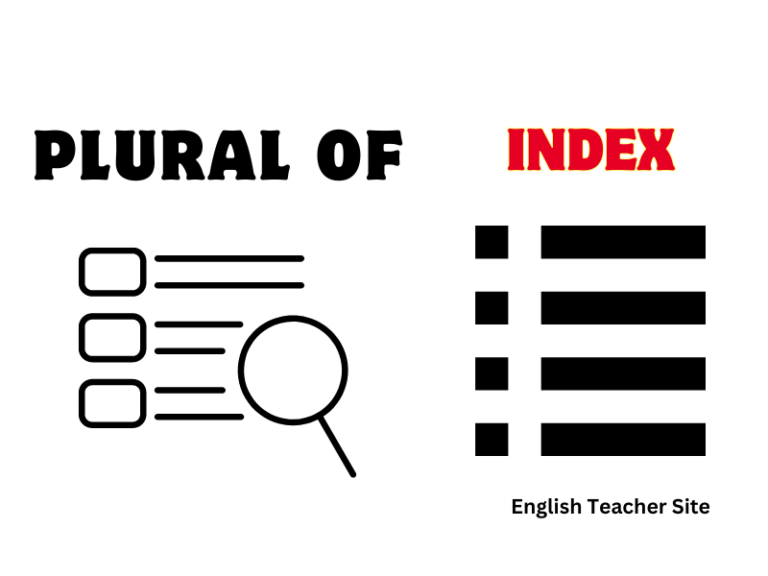What’s the Plural of Focus: Understanding the Variants

- Both focuses and foci are correct plural forms of the noun focus.
- Focuses is more commonly used, while foci is the original Latin plural.
- The term focus is essential for clear communication across various contexts.
When delving into the English language, the question of how to correctly form plurals—especially from words with Latin origins—often arises. The word focus serves as a prime example of such a term where the plural form isn’t immediately obvious. It’s essential for learners to understand that there are two acceptable plural forms for the noun focus: focuses and foci. The former tends to be more commonly used in everyday English, while the latter is the original Latin plural.
Understanding the Plural Forms of Focus
The term focus has two acceptable plural forms. The traditional Latin plural is “foci,” while “focuses” is the plural commonly used in the modern English language.
The original Latin term for “hearth” or “fireplace” was “focus.” In English, it extended to mean the center of activity or attention. This semantic shift from a physical space to an abstract concept shows the fluid nature of language adaptation. The choice between “foci” and “focuses” depends on the context in which the word is used.
| Plural Form | Contextual Preference |
|---|---|
| foci | Scientific, technical, or when referring to geometrical points |
| focuses | General English usage including everyday language and non-technical discussions |
Example Sentences:
- In optics, there are two foci at which rays parallel to the axis converge.
- The meeting’s focuses include discussing budget plans and team objectives.
The term “focus” is considered both a countable and uncountable noun. Here is how each form is justified:
- Foci: Being faithful to the original Latin form, “foci” implies a technical or formal tone, often used in mathematics, science, and specialized discourse.
- Focuses: Aligns with regular English pluralization rules (adding -es), thus is more prevalent in everyday conversation and is easier for most speakers and writers to use.
What Does the Word “Focus” Mean?
In the domain of English vocabulary, the term focus carries a significant weight. It originates from the Latin word “focus,” which means “hearth” or “fireplace,” and has evolved to encompass a variety of meanings that center on the idea of a central point of attention or activity.
Definitions:
- Center of Activity: The word “focus” often denotes the hub or core around which activities revolve. For instance:
- In a business meeting, the focus might be enhancing customer satisfaction.
- Point of Concentration: When one is concentrating on a particular task, the point of attention is also referred to as the focus. Examples might be:
- During meditation, the practitioner’s focus is often their breath.
- Optical Clarity: In optics, “focus” refers to the clarity or sharpness of an image. For example:
- To capture a crisp photo, the camera lens must be adjusted to the correct focus.
Lexical Considerations:
| Item | Description |
|---|---|
| Pronunciation | Commonly pronounced as /ˈfoʊ.kəs/ in American English. |
| Plurality | Can take “focuses” or the less common “foci” as its plural form. |
Contextual Use:
- In education, teachers strive to keep students’ focus on the lesson.
- In discussions or debates, a speaker might clarify what the main focus should be.
Other Latin Nouns
Nouns ending in -us generally change to -i in the plural:
- Cactus becomes cacti.
- Alumnus becomes alumni.
Nouns ending in -um switch to -a:
- Datum becomes data.
- Curriculum becomes curricula.
Nouns ending in -is change to -es:
- Analysis becomes analyses.
- Thesis becomes theses.
The following tables exhibit more examples along with their singular and plural forms:
| Singular | Plural |
|---|---|
| focus | foci |
| radius | radii |
| stimulus | stimuli |
| Singular | Plural |
|---|---|
| index | indices |
| appendix | appendices |
Some Latin nouns have irregular plural forms or maintain the same form for both singular and plural:
- Irregular: The word “child” in Latin is “puer.” The plural form is “pueri.”
- Same Form: “Species” and “deer” are examples of Latin words that remain the same in both singular and plural.
Examples of the Word Focus (Used in Sentences)
Here, we’ll explore how “focus” can be deployed in sentences, demonstrating its utility across different scenarios.
Singular Use of “Focus”:
- He adjusted the lens until the image came into focus.
- She has an uncanny ability to maintain focus during hectic situations.
Plural Use of “Focus” (Focuses or Foci):
- The school has several focuses ranging from arts to sciences.
- The discussion had multiple foci, including economics and sociology.
Tables Showcasing Sentence Structures with “Focus”:
| Singular Examples | Plural Examples (Focuses) |
|---|---|
| The microscope brought the cells into sharp focus. | The photographer set different focuses for each shot. |
| Her focus on detail is exceptional. | The seminar highlighted the main focuses of study. |
| Alternate Plural Examples (Foci) |
|---|
| The research paper identified three primary foci of inquiry. |
| During the meditation session, participants discovered new foci within. |
Examples of Focuses/Foci (Used in Application)
Use of Focuses
When using focuses, we generally refer to multiple centers of interest or activity in a more colloquial or less formal setting. Here are examples in a sentence structure:
- The focuses of the meeting were budget planning and team coordination.
- In her research, she focuses on the impacts of climate change.
Use of Foci
Foci, derived from Latin, often appears in scientific or technical texts where precision is paramount. Below are instances of its use:
- The foci of the earthquake were mapped precisely using satellite data.
- The study’s foci include various biological markers for the disease.
Here are a couple of tables illustrating the use of both plural forms in different contexts:
| Formality | Singular | Plural | Contextual Example |
|---|---|---|---|
| Informal | focus | focuses | The camera has multiple focuses. |
| Formal | focus | foci | The lens has two principal foci. |
| Field | Singular | Plural | Example in Field |
|---|---|---|---|
| General | focus | focuses | His focuses included both painting and music. |
| Geometry | focus | foci | An ellipse has two fixed points known as foci. |
Historical Usage and Origin
The term focus has its origin in the Latin word “focus,” which means hearth or fireplace. Historically, this term was used figuratively to refer to the home or family, representing a central point of gathering and warmth.
| Century | Usage |
|---|---|
| 17th | In both literal and figurative senses describing the center or starting point of activity. |
| 19th | Extension to other disciplines like optics and geometry. |
In the transition from Latin to New Latin, the term took on additional meanings within the sciences, including optics and geometry. By the 17th century, “focus” was used to describe the point where light converges through a lens. Here are some of the key developments and uses of the term:
- Optics: A point where rays of light meet after reflection or refraction.
- Geometry: A special point of a conic section, such as an ellipse or a parabola.
The plural of focus, following its Latin roots, can be written as “foci” (pronounced as ‘ˈfō-sī’ or ‘ˈfō-ˌkī’). Alternatively, the anglicized plural “focuses” is also commonly accepted.
| Plural Form | Pronunciation |
|---|---|
| foci | ‘ˈfō-sī’, ‘ˈfō-ˌkī’ |
| focuses | As it appears |
Grammatically, as nouns evolve in usage, their pluralizations can also undergo changes. The pluralization of “focus” in English exhibits this flexibility.
- In literature:
- Used metaphorically to denote the center of attention or activity.
- Introduced in scientific writings to label points of convergence or centers.
In academic contexts, both “foci” and “focuses” might be used, though “foci” retains a sense of technical precision, especially within the scientific community. The choice between these two forms depends on the context and the preference for either traditional or modern grammatical style.
Sources
My name is Khamis Maiouf. I am the creator of the English Teacher Site, dedicated to providing valuable resources and insights for students around the world. With a passion for education and a commitment to helping students enhance their skills, I aim to make English teaching more effective and enjoyable for both educators and students.






